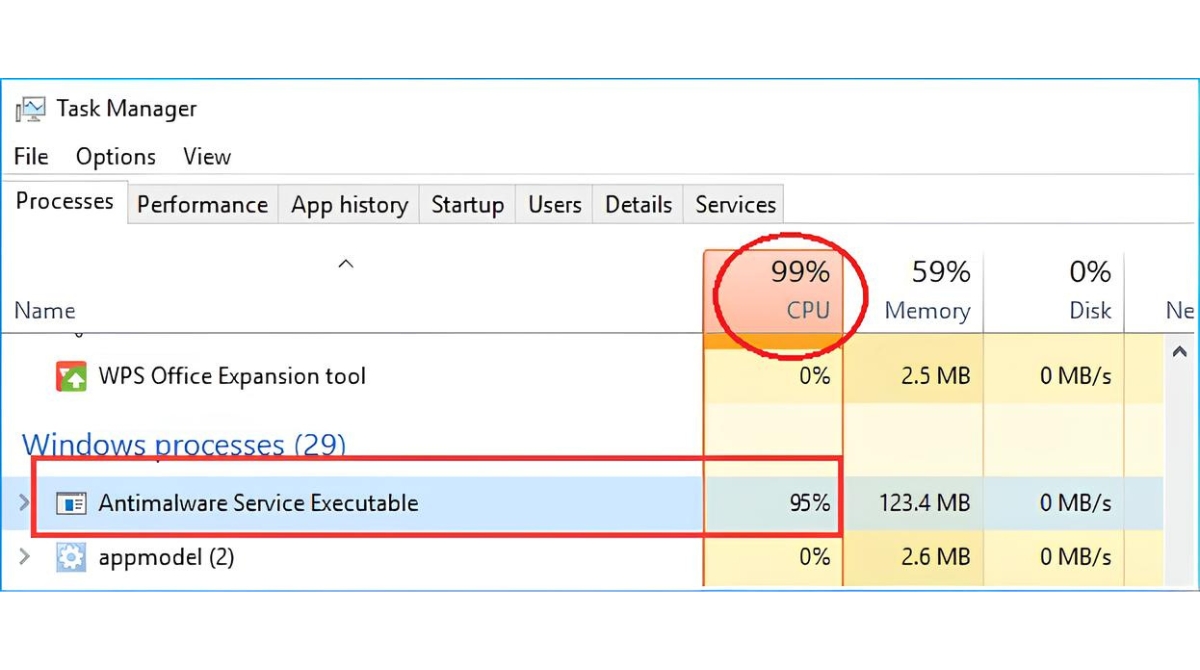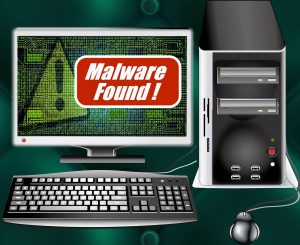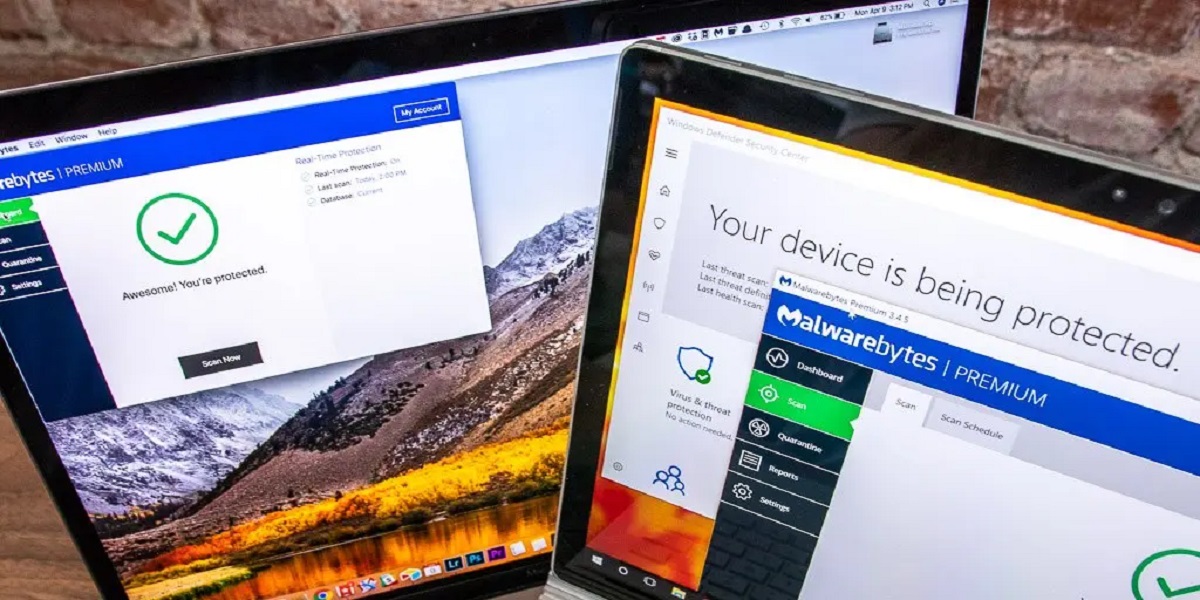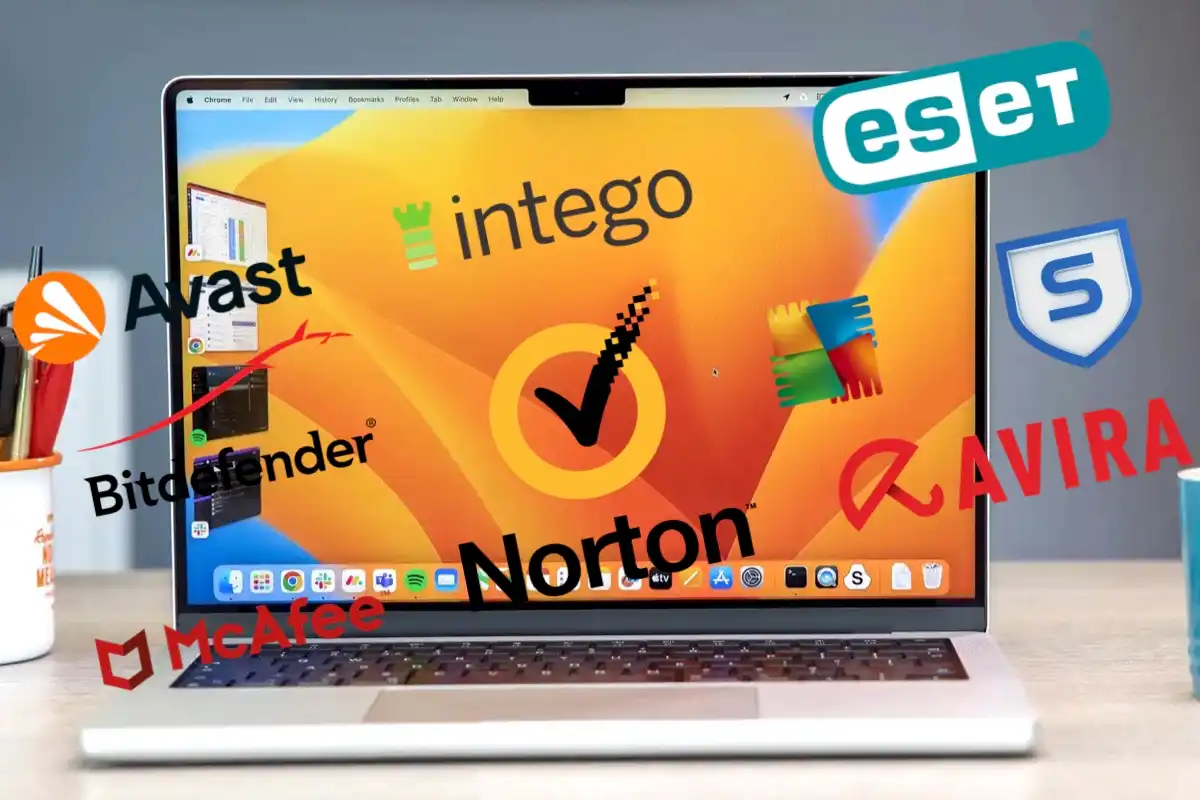Introduction
Welcome to the world of cybersecurity, where protecting your digital devices against malware and viruses is of utmost importance. With the increasing number of online threats, it has become essential for individuals and businesses to invest in reliable antivirus software. But the question arises – how much does antivirus software cost, and is it worth the investment?
Antivirus software is designed to detect, prevent, and remove malicious software from your devices. It acts as a protective shield, scanning your files, websites, and downloads to identify any potential threats. By constantly updating its virus databases, antivirus software ensures that your devices stay secure in the ever-evolving landscape of cyber threats.
There are different types of antivirus software available, ranging from free options to premium packages that offer comprehensive protection. Each type has its own set of features, and the cost of antivirus software can vary depending on various factors, including the level of protection, additional features, and the brand reputation.
Free antivirus software, as the name suggests, can be downloaded and used without paying any upfront cost. These programs typically offer basic protection against known viruses, but may lack advanced features such as real-time scanning, firewall protection, or dedicated customer support. They are a good option for budget-conscious individuals or those who need minimal protection.
On the other hand, paid antivirus software offers a more comprehensive suite of features and provides enhanced protection against a wider range of threats. These packages often include advanced features like password managers, secure web browsing, parental controls, and identity theft protection. They also come with dedicated customer support, ensuring that any issues or queries are addressed promptly.
The cost of antivirus software can vary widely depending on the brand, the number of devices covered, and the duration of the subscription. While some antivirus software may offer a lifetime license, others may require an annual or monthly subscription. It’s important to consider your specific needs and budget when choosing the right antivirus software for you.
In this article, we will explore the different types of antivirus software, the factors that affect their pricing, and whether paying for antivirus software is worth it. So, let’s dive in and find out how much antivirus software typically costs.
What is Antivirus Software?
Antivirus software, also known as anti-malware software, is a program designed to protect your computer, smartphone, or other digital devices from malicious software, commonly referred to as malware. This software is specifically designed to detect, prevent, and remove various types of malware, including viruses, worms, trojans, spyware, and ransomware.
The main purpose of antivirus software is to safeguard your devices and data from unauthorized access, data theft, and potential damage caused by malware. It does this by scanning your files, emails, downloads, and other activities in real-time to identify any malicious code or suspicious behavior.
Once the antivirus software detects a potential threat, it takes appropriate action to remove the malware or quarantine it to prevent further harm. This can involve cleaning infected files, isolating them from the rest of the system, or completely deleting them.
Modern antivirus software employs a variety of techniques to detect and combat malware. These include signature-based detection, behavior-based detection, heuristic analysis, sandboxing, and machine learning algorithms. By constantly updating their virus databases and incorporating advanced detection methods, antivirus software is able to provide effective protection against both known and emerging threats.
Antivirus software plays a crucial role in maintaining the security and integrity of your digital devices. It not only protects your personal information, such as passwords and financial data, but also safeguards your devices from being used as a platform for launching attacks on others.
It’s important to note that antivirus software should not be considered as a standalone solution for cybersecurity. It forms a part of a holistic cybersecurity strategy that includes regular operating system and software updates, strong passwords, safe browsing practices, and regular backups of your important data.
In the next sections, we will dive deeper into the different types of antivirus software, their features, and the factors that affect their pricing. So, let’s explore the world of antivirus software and find the best protection for your digital devices.
Types of Antivirus Software
When it comes to antivirus software, there are several types available, each offering different levels of protection and features. Understanding these types can help you choose the one that best meets your needs. Let’s explore the different types of antivirus software:
- Free Antivirus Software: As the name suggests, free antivirus software is available at no cost. These programs offer basic protection against known threats, including viruses, malware, and spyware. However, they may lack advanced features like real-time scanning, firewall protection, or customer support. Free antivirus software is a good option for budget-conscious individuals or those who require minimal protection.
- Paid Antivirus Software: Paid antivirus software typically offers a more comprehensive suite of features and enhanced protection. These packages often include real-time scanning, firewall protection, email filtering, secure web browsing, and additional features such as password managers, parental controls, and identity theft protection. Paid antivirus software also provides dedicated customer support to address any issues or queries. The cost of paid antivirus software can vary depending on the brand, the number of devices covered, and the subscription duration.
- Internet Security Suites: Internet security suites are advanced antivirus software packages that provide comprehensive protection not only against malware but also against other online threats. In addition to antivirus features, these suites often include features like anti-phishing, anti-spam, secure browsing, and firewall protection. Internet security suites are designed to offer a holistic cybersecurity solution, protecting your devices and sensitive data from various online threats.
- Cloud-Based Antivirus: Cloud-based antivirus software operates by scanning files and data on remote servers rather than on the local device. This type of antivirus software offers several advantages, including lightweight installation, faster scanning times, and real-time updates. Cloud-based antivirus software is particularly useful for devices with limited processing power or those that rely on a stable internet connection for scanning and protection.
- Mobile Antivirus Software: With the increasing use of smartphones and tablets, mobile antivirus software has become essential for protecting these devices against mobile-specific threats. Mobile antivirus software offers features like malware detection, app scanning, anti-theft capabilities, and privacy protection. It helps secure your mobile devices, safeguard your personal information, and protect against malicious apps and mobile scams.
Understanding the different types of antivirus software can help you make an informed decision about which one is best suited for your specific needs. Consider factors such as the level of protection required, the features you deem important, and your budget. By selecting the right type of antivirus software, you can ensure that your devices and data remain safe and secure from the ever-evolving cyber threats.
Free Antivirus Software
When it comes to protecting your devices from malware and viruses, free antivirus software can be a viable option. As the name suggests, free antivirus software is available at no cost, making it an attractive choice for budget-conscious individuals. However, it’s important to understand the features and limitations of free antivirus software before opting for it.
Free antivirus software typically offers basic protection against known viruses, malware, and spyware. It scans your files, emails, and downloads to identify any potential threats and takes necessary actions to remove or quarantine them. While free antivirus software can effectively detect and eliminate many common threats, it may lack some advanced features found in paid antivirus solutions.
One of the main limitations of free antivirus software is the absence of real-time scanning. Real-time scanning continuously monitors your system and files for any suspicious activity, providing immediate protection against emerging threats. Free antivirus software often requires manual scans, which means you need to initiate the scanning process yourself.
Another aspect to consider is the lack of additional features such as firewall protection, password managers, or dedicated customer support. Free antivirus software focuses mainly on virus detection and removal. If you require additional features for enhanced security, convenience, or personalized support, you may need to consider paid antivirus software.
Despite these limitations, free antivirus software can still provide a satisfactory level of protection for basic needs. It’s particularly suitable for individuals who practice safe browsing habits, regularly update their operating systems and applications, and exercise caution when downloading files or opening suspicious email attachments.
It’s important to note that while free antivirus software can offer decent protection, it may be supplemented with ads or other promotional offers to compensate for its cost. Additionally, some free antivirus software can have limited updates or lack the ability to detect new and emerging threats as effectively as their paid counterparts.
Ultimately, the choice between free and paid antivirus software depends on your specific needs, budget, and desired level of protection. If you have higher security requirements, want additional features, or prefer dedicated customer support, investing in a paid antivirus solution may be the preferable option. However, if you have limited security needs and don’t want to spend money on antivirus software, free antivirus software can be a good starting point.
Whichever option you choose, it’s essential to regularly update your antivirus software and maintain good cybersecurity practices to ensure the ongoing protection of your devices and data.
Paid Antivirus Software
When it comes to protecting your digital devices from malware and other online threats, paid antivirus software offers a comprehensive and robust solution. Paid antivirus software packages provide advanced features and additional layers of protection that go beyond what free options can offer. Let’s explore the benefits and features of paid antivirus software.
Paid antivirus software typically includes features such as real-time scanning, which continuously monitors your system and files for any suspicious activity. This proactive approach ensures that newly emerging threats are detected and addressed promptly, providing a higher level of security.
In addition to real-time scanning, paid antivirus software often includes firewall protection, which acts as a barrier between your device and the internet, blocking unauthorized access and potential threats. This feature helps prevent hackers from gaining access to your personal information and data.
Another advantage of paid antivirus software is the inclusion of additional features like password managers, secure web browsing, and identity theft protection. Password managers enable you to securely store and manage your login credentials, while secure web browsing ensures that you can safely navigate websites without exposing yourself to phishing attempts or malicious downloads.
Furthermore, paid antivirus software usually comes with dedicated customer support. Having access to expert assistance can be invaluable if you encounter any issues, need advice on cybersecurity best practices, or have questions about the software’s features.
One significant benefit of paid antivirus software is the frequent and automatic updates that keep your software’s virus database up to date. These updates ensure that your antivirus program remains effective in detecting and combating new and emerging threats. Additionally, paid antivirus software often undergoes rigorous testing and receives regular security patches, providing an added layer of defense against the latest malware.
While paid antivirus software offers a higher level of protection and a range of additional features, it’s important to note that the cost of these packages can vary depending on the brand, the number of devices covered, and the subscription duration. It’s essential to consider your specific needs and budget when selecting the right paid antivirus software for you.
Ultimately, paid antivirus software provides a comprehensive solution for individuals and businesses that prioritize the security of their digital devices and data. With features like real-time scanning, firewall protection, additional security tools, and dedicated customer support, paid antivirus software offers peace of mind and a higher level of protection against malware and other online threats.
Remember that regardless of whether you choose free or paid antivirus software, practicing good cybersecurity hygiene, such as regular software updates and safe browsing habits, is essential to maintain the security of your digital life.
Factors That Affect the Price of Antivirus Software
When it comes to purchasing antivirus software, it’s important to understand the factors that can influence the price. Antivirus software is not a one-size-fits-all solution, and the cost can vary depending on several key factors. Let’s explore the factors that affect the price of antivirus software:
- Level of Protection: The level of protection offered by antivirus software can significantly impact the price. Basic antivirus software that provides essential virus detection and removal is generally more affordable compared to comprehensive security suites that offer advanced features like real-time scanning, firewall protection, and additional security tools.
- Number of Devices: The number of devices covered under the antivirus software license can impact the price. Some software licenses may cover a single device, while others might allow multiple devices to be protected under a single subscription. The more devices covered, the higher the cost is likely to be.
- Subscription Duration: The duration of the antivirus software subscription can also affect the price. Most antivirus software providers offer various subscription options, such as monthly, annual, or multi-year plans. Longer subscription durations often come with discounted prices compared to shorter-term subscriptions.
- Brand Reputation: The reputation and credibility of the antivirus software brand can also play a role in determining the price. Well-established and trusted brands may charge a premium for their software due to their track record of delivering effective protection and reliable customer support.
- Additional Features: The inclusion of additional features beyond basic virus protection can contribute to the price variation. Advanced features like password managers, secure browsing, identity theft protection, and parental controls can enhance the overall security and convenience but may come at an additional cost.
- Customer Support: The availability of dedicated customer support is another factor that can affect the price of antivirus software. Software packages that offer round-the-clock customer support, including phone, email, or live chat, may have a higher price compared to those with limited or no customer support.
It’s important to carefully consider your specific needs and budget when selecting antivirus software. Assess the level of protection required, the number of devices you need to protect, and the additional features that are essential for your security needs. Don’t forget to consider the reputation of the brand and the level of customer support provided.
While cost is a significant factor, it should not be the sole determinant in choosing antivirus software. Balancing affordability with the necessary level of protection is crucial to ensure that your devices and data are adequately secured against malware and other online threats.
By understanding these factors, you can make an informed decision and choose the right antivirus software that provides optimal protection at a price point that suits your budget and security requirements.
How Much Does Antivirus Software Typically Cost?
The cost of antivirus software can vary widely depending on several factors, including the brand, the level of protection, and the features it offers. While some antivirus software options are available for free, others come with a price tag. Let’s explore the typical cost range of antivirus software:
Free Antivirus Software: As mentioned earlier, there are free antivirus software options available that can provide basic protection for your devices. These programs are typically offered at no cost, making them accessible to anyone with an internet connection. However, it’s important to note that free antivirus software may have limitations when it comes to advanced features, customer support, and real-time scanning capabilities.
Paid Antivirus Software: Paid antivirus software, on the other hand, offers a higher level of protection and often includes additional features. The cost of paid antivirus software can range from around $20 to $100 or more per year, depending on the brand, the number of devices covered, and the subscription duration. Some brands may offer different tiers of packages at different price points, allowing you to choose the one that best matches your needs and budget.
It’s important to consider the value that paid antivirus software provides. In addition to advanced protection against malware, it often includes features like real-time scanning, firewall protection, secure web browsing, password managers, and dedicated customer support. These features can greatly enhance your overall security and provide peace of mind.
It’s worth mentioning that there are also higher-cost options available, typically aimed at businesses and organizations with more complex cybersecurity needs. These enterprise-level antivirus solutions often offer additional features like centralized management, advanced threat intelligence, and tailored support packages.
Furthermore, antivirus software providers may offer discounts or promotional prices from time to time. It’s always a good idea to explore different options, compare prices, and look for any available deals that can provide cost savings without compromising the desired level of protection.
Ultimately, the cost of antivirus software should be considered as an investment in the security and protection of your digital devices and data. While free antivirus software can provide basic protection, paid software options offer a higher level of security along with additional features and dedicated customer support.
When determining the budget for antivirus software, it’s important to weigh the potential consequences of not having adequate protection against the cost of investing in reliable software. Remember, the cost of dealing with a security breach or loss of sensitive data can far outweigh the cost of investing in a quality antivirus solution.
By considering your specific needs, budget, and the level of protection required, you can make an informed decision that ensures your devices and data are well-protected against the ever-evolving threats of the digital world.
Is It Worth Paying for Antivirus Software?
With free antivirus software options available, you might wonder if it’s really worth paying for antivirus software. While free options can provide some level of protection, there are several reasons why it may be worth investing in a paid antivirus software solution:
Enhanced Protection: Paid antivirus software typically offers a higher level of protection compared to free alternatives. With advanced features like real-time scanning, firewall protection, and malware detection, paid software can better safeguard your devices against evolving threats. This can give you peace of mind knowing that your digital life is well-protected.
Additional Features: Paid antivirus software often comes bundled with additional features that can enhance your overall security and convenience. These may include password managers, secure web browsing, identity theft protection, and parental controls. These features provide added layers of protection and make it easier to manage your online activities.
Customer Support: Another benefit of paid antivirus software is the availability of dedicated customer support. If you encounter any issues or have questions about the software, you can rely on professional support to assist you. This can be particularly helpful, especially if you’re not a technical expert and need guidance in resolving any potential security-related concerns.
Frequent Updates: Paid antivirus software typically receives frequent updates to keep up with the latest threats. These updates ensure that your software is equipped to handle new and emerging malware. By staying up-to-date, you can maintain a high level of protection for your devices and data.
Peace of Mind: Investing in paid antivirus software provides peace of mind, knowing that you have a comprehensive and reliable solution protecting your digital life. With advanced protection features, regular updates, and additional functionality, you can browse the internet, download files, and use your devices without constantly worrying about potential security threats.
Cost of Cybersecurity Incidents: Consider the potential consequences of a cybersecurity incident, such as identity theft, loss of sensitive data, or unauthorized access to your accounts. The financial and emotional costs of dealing with such incidents can far outweigh the investment in quality antivirus software. It’s better to be proactive and invest in preventative measures rather than dealing with the aftermath of a security breach.
While free antivirus software can provide a basic level of protection, paid antivirus software offers a more comprehensive and robust solution. It provides enhanced security features, additional functionality, reliable customer support, and peace of mind. The cost of paid antivirus software is often affordable, considering the protection and convenience it offers.
Ultimately, the decision to pay for antivirus software depends on your specific needs, budget, and willingness to invest in comprehensive security. If you prioritize the safety of your devices and data, along with the convenience of additional features, paid antivirus software is a worthwhile investment that can effectively protect your digital life.
Remember, irrespective of whether you choose free or paid antivirus software, it’s essential to practice good cybersecurity habits, such as regularly updating your software, using strong and unique passwords, and exercising caution when browsing the internet or downloading files.
Conclusion
Antivirus software plays a crucial role in protecting your digital devices from malware, viruses, and other online threats. Whether you opt for free or paid antivirus software, it’s essential to choose the option that best meets your specific needs for protection, features, and budget.
Free antivirus software can be a suitable choice for those with limited security needs or budget constraints. While it may lack advanced features and dedicated customer support, it can still provide basic protection against known threats. However, if you require comprehensive protection, additional features such as real-time scanning, firewall protection, and password managers, and access to professional customer support, then investing in paid antivirus software is recommended.
The cost of antivirus software can vary depending on factors such as the level of protection, the number of devices covered, and the brand reputation. It’s important to compare different options, consider the value provided, and choose a solution that fits your budget. Remember that the cost of dealing with a security breach or loss of sensitive data can greatly exceed the expense of investing in reliable antivirus software.
Whichever antivirus software you choose, the key is to regularly update your software and practice good cybersecurity habits. This includes keeping your operating system and applications up to date, using strong and unique passwords, being cautious while browsing the internet and downloading files, and regularly backing up your important data.
Ultimately, antivirus software is a critical component of your overall cybersecurity strategy. By investing in reliable antivirus software and following best security practices, you can minimize the risk of falling victim to malware and protect your digital devices and personal information.
So, choose the antivirus software that suits your needs, take proactive measures to enhance your security, and enjoy a safer and more secure digital experience.

























